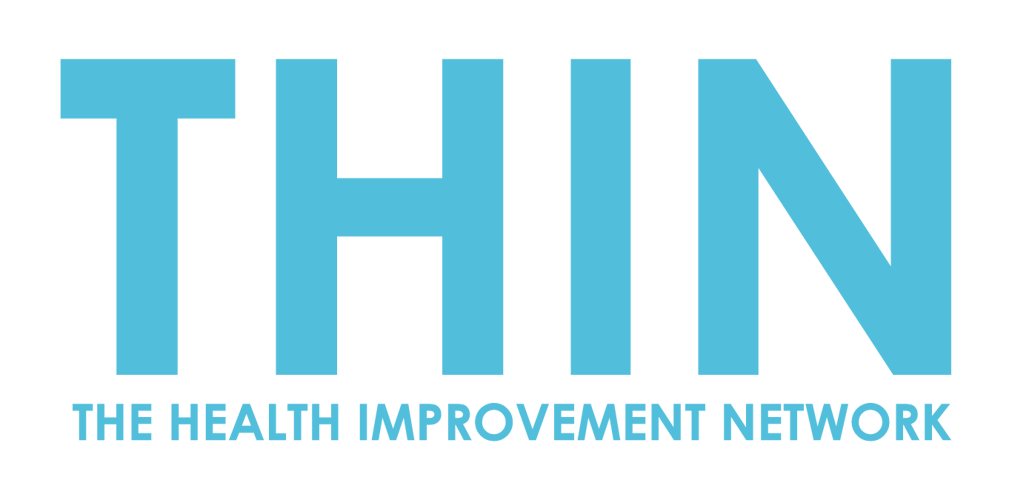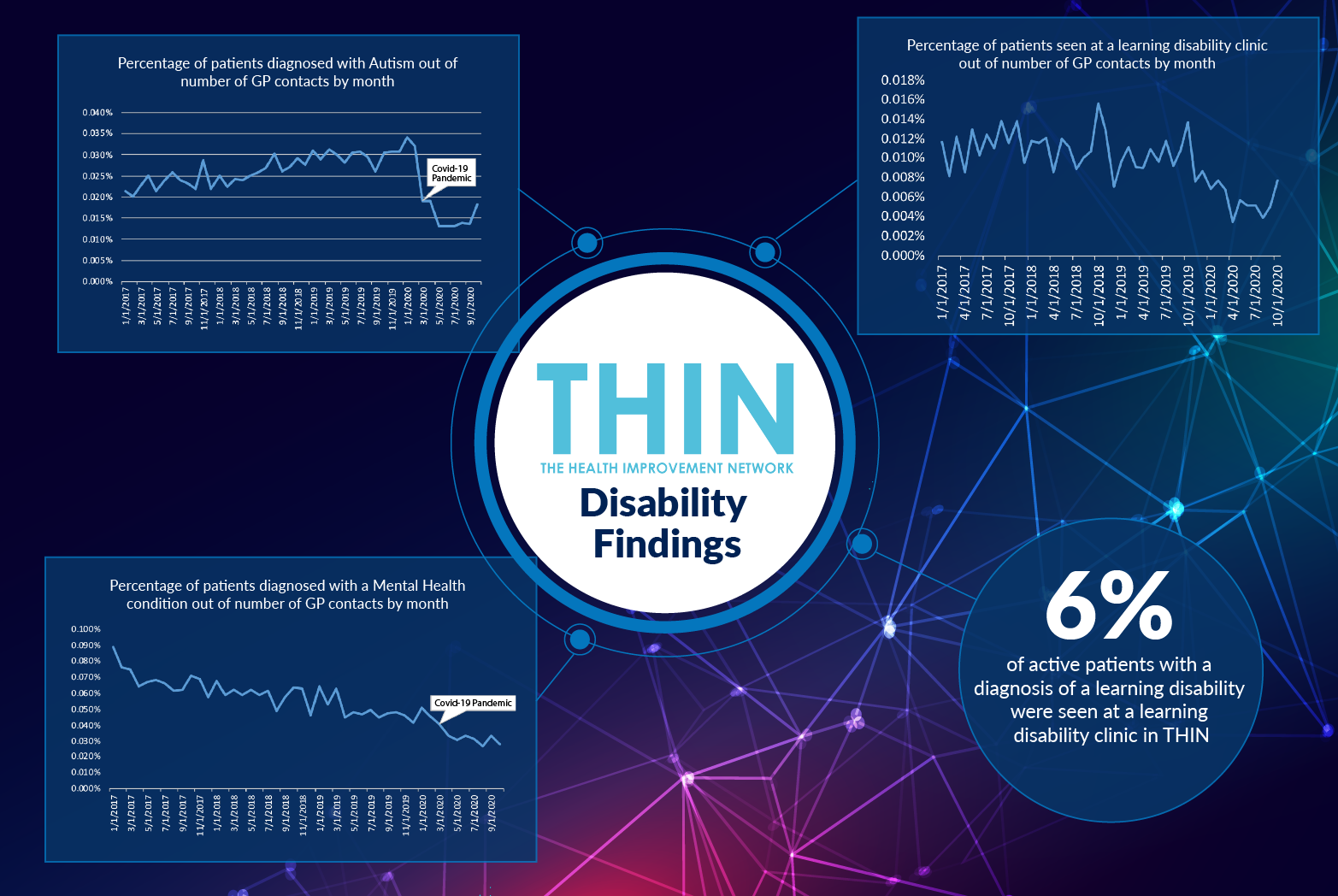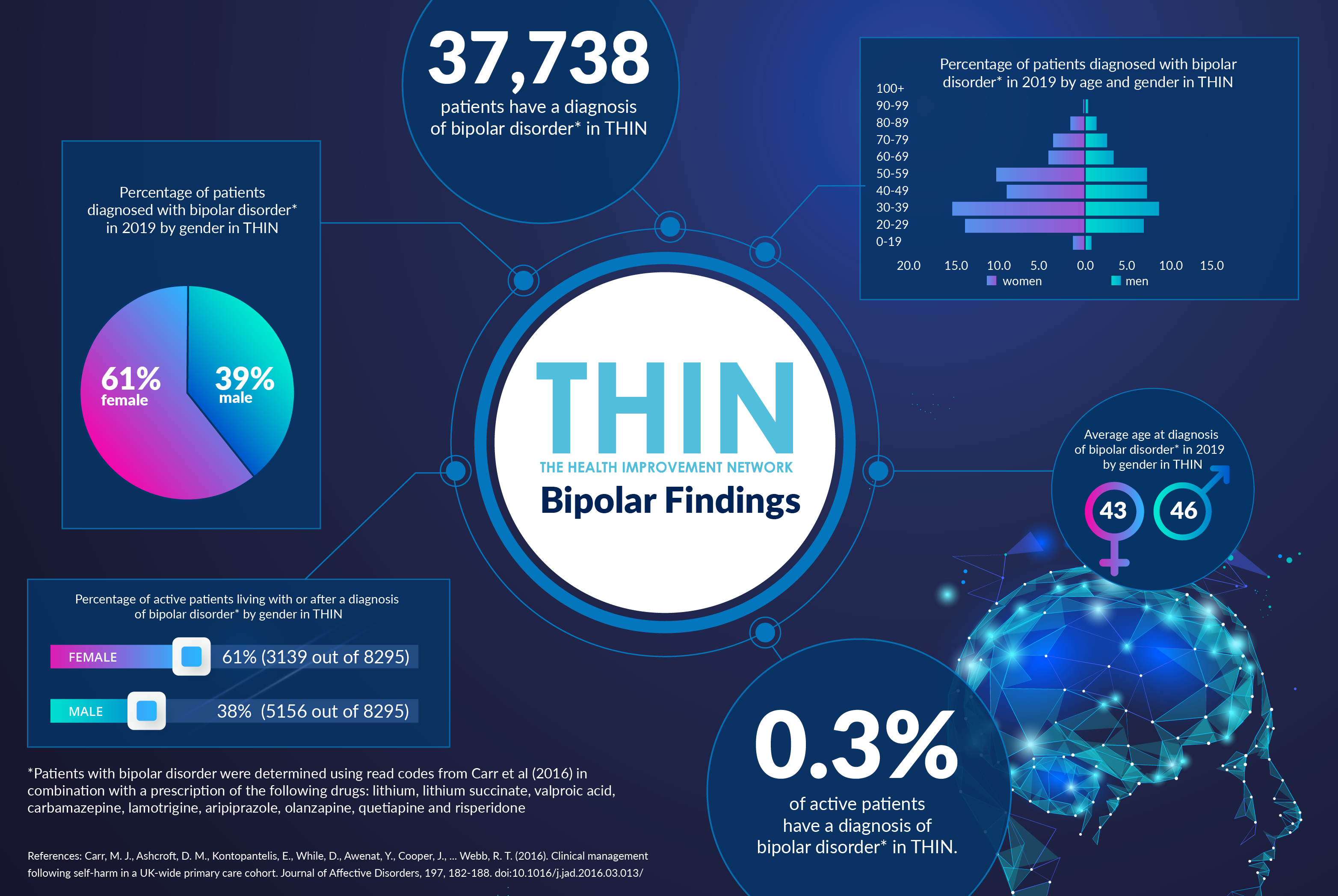Targeting Care in Mental Health Week
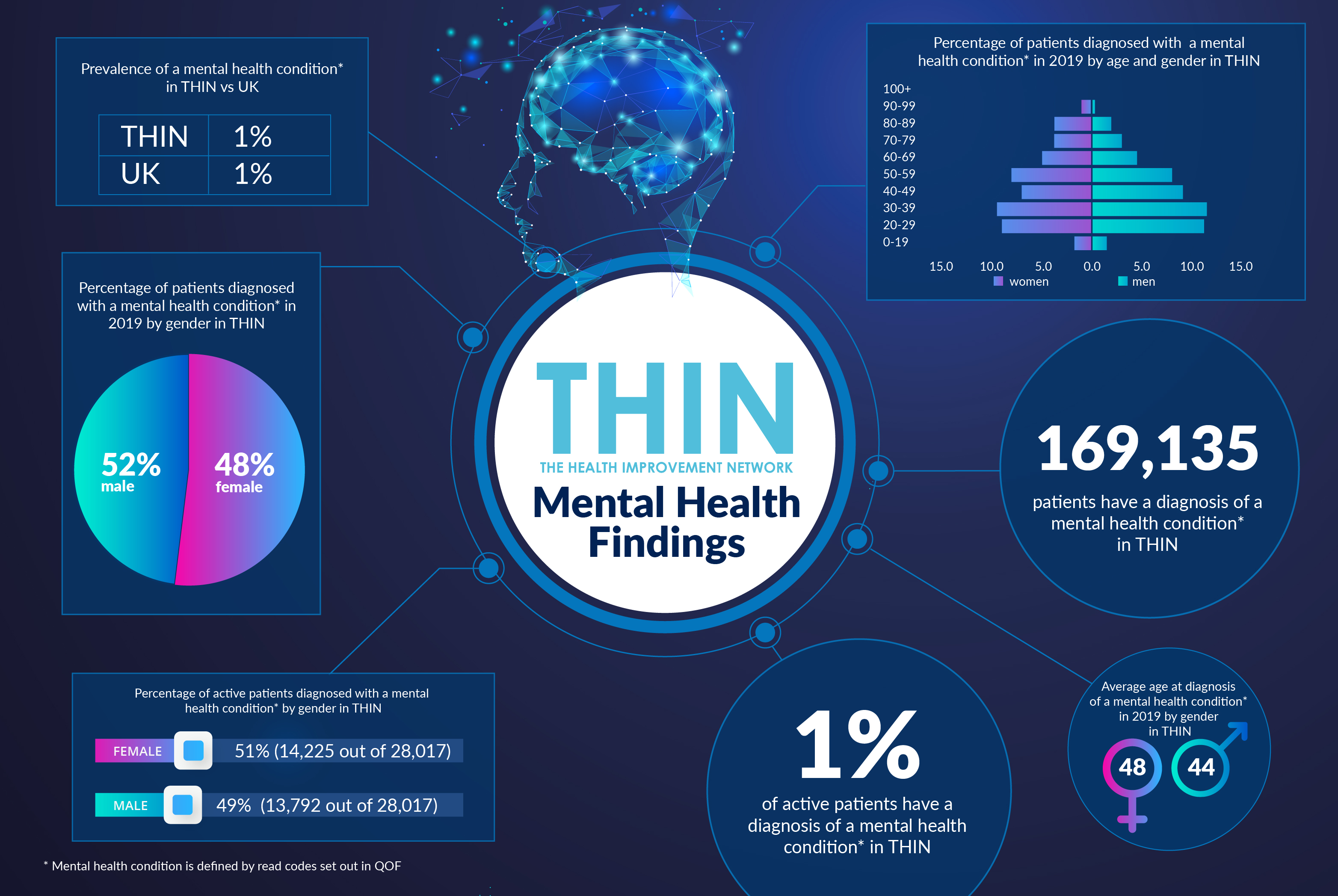
The death of TV presenter Caroline Flack just weeks before the COVID-19 induced lockdown inspired an outpouring of national grief. It sparked not only awareness of the need to better understand mental health but also prompted hundreds of thousands of people to share Caroline’s own words on social media: “In a world where you can be anything, be kind."
With the nation’s mental health now becoming a pressing concern as a result of isolation and uncertainty, the decision to adopt Kindness as the theme of this year’s Mental Health Week was hugely prescient. As the Mental Health Organisation reports, research demonstrates that kindness and our mental health are deeply connected: kindness is an antidote to isolation and creates a sense of belonging; it helps reduce stress, brings a fresh perspective and deepens friendships.
COVID-19 Fears
The demand for mental health services is expected to rise as a result of the COVID-19 crisis. The charity’s research confirms that millions of UK adults have felt panicked, afraid and unprepared because of the coronavirus pandemic, with the psychological and social impacts likely to outlast the physical symptoms of the virus.
This surge in mental health conditions, depression and anxiety will create significant additional challenges for in demand mental health services. According to analysis of The Health Improvement Network (THIN®), a Cegedim Database, 1% of the UK population has a mental health condition and 15% have received a diagnosis of anxiety or depression.
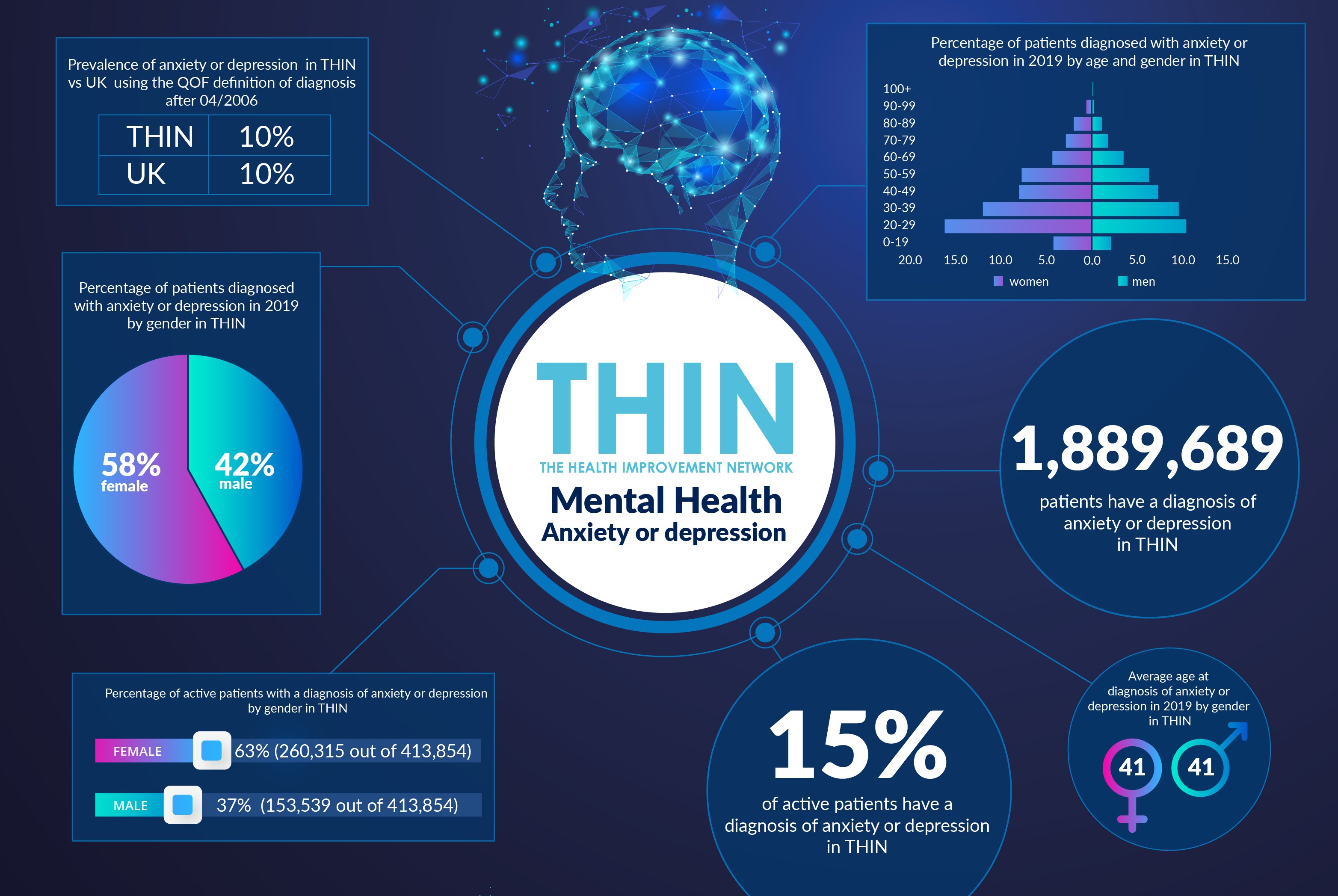
Gender Difference
There is a notable gender difference, especially with anxiety and depression. While mental health conditions affect both genders equally, women are far more likely to experience anxiety or depression. In 2019, 58% of patients diagnosed with anxiety or depression in THIN® were women; and 63% of all active patients with a diagnosis of anxiety or depression in THIN® are women. Over a quarter (27%) of active patients with a diagnosis of a mental health condition have a record of self-harm in THIN® – and 55% of these are women. However, looking at incidences of self-harm and bipolar disorder, 31% of active patients with a diagnosis of bipolar disorder** have a reported history of self-harm in THIN® and women are more than twice as likely to self-harm.
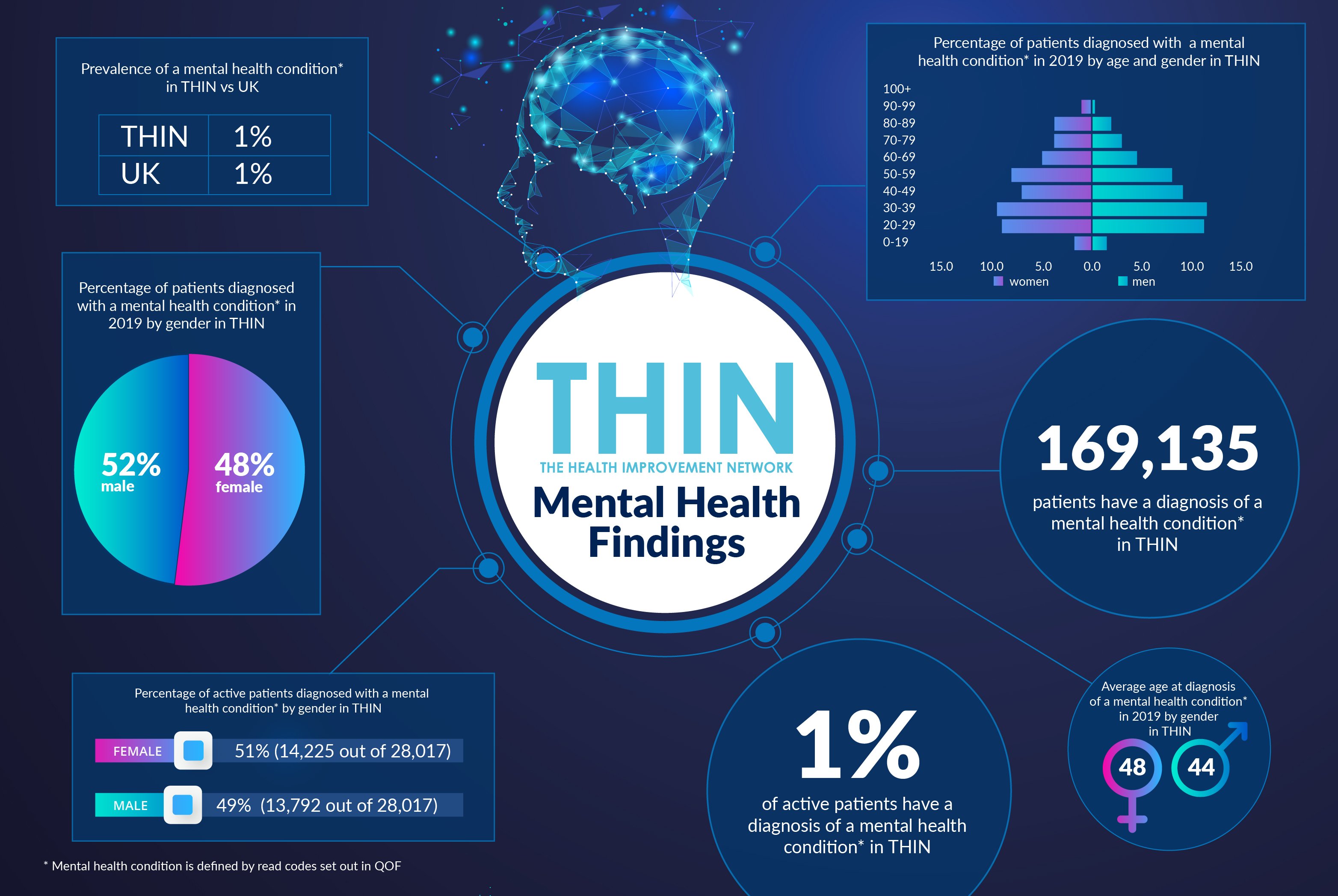
With a data history spanning just under 1.9 million patients diagnosed with depression or anxiety, analysis of the THIN® database delivers essential insight, not least into the use of drugs to manage the condition. Over half (51%) of active patients with a diagnosis of anxiety or depression received at least one antidepressant prescription* in 2019 in THIN® – while 11% received nine or more prescriptions in one year. Women are far more likely to look for a pharmaceutical solution: two thirds (67%) of active patients with a diagnosis of anxiety or depression that received an antidepressant prescription* in 2019 in THIN® were female.
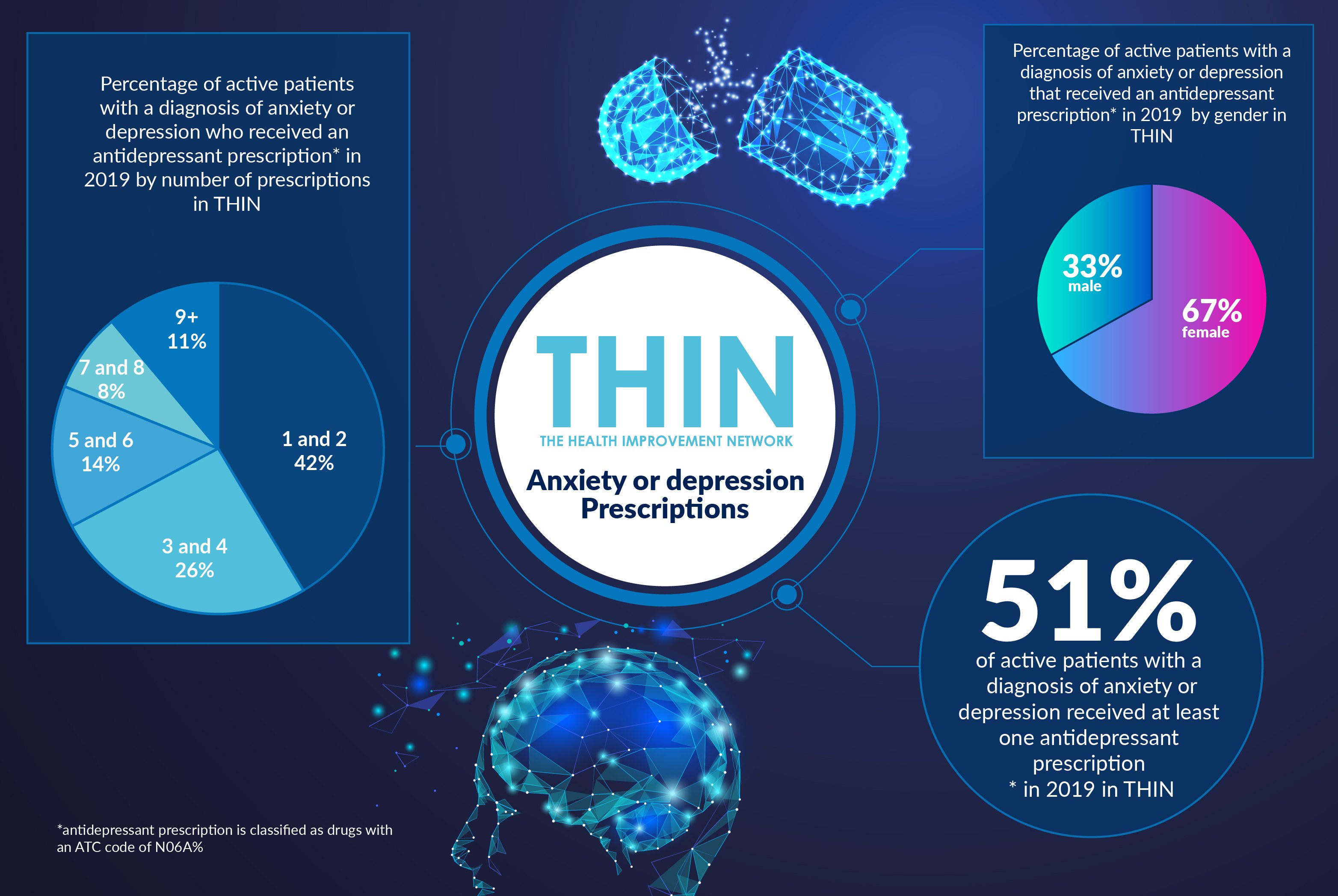
Managing Multimorbidity
As the Mental Health Organisation reports, multimorbidity is a growing public health concern and a significant challenge facing health services: having both cancer and a mental health condition, for example, is related to poorer quality of life, increased risk of death (including by suicide), poorer treatment adherence and outcomes, and higher healthcare costs.
The depth of data within the THIN® database reveals key findings into comorbidities, including diabetes, coronary heart disease and cancer. 9% of active patients have a diagnosis of anxiety or depression and diabetes in THIN® and 6% of active patients have a diagnosis of anxiety or depression and coronary heart disease in THIN®. Notably, over a fifth (22%) of active patients have a diagnosis of anxiety or depression and cancer in THIN®, and over a quarter (26%) of active patients with a diagnosis Parkinson’s disease also have a diagnosis of anxiety or depression in THIN®.
Given the upheaval in primary and secondary care over the past few months, including delays to cancer diagnosis and treatment, the ability to identify, understand and support those individuals suffering multimorbidity will be important. In addition, as the longer term health implications of the pandemic become clear, especially for those with chronic conditions, deep epidemiological data will be vital to improve understanding of the long term mental as well as physical health implications of the virus.
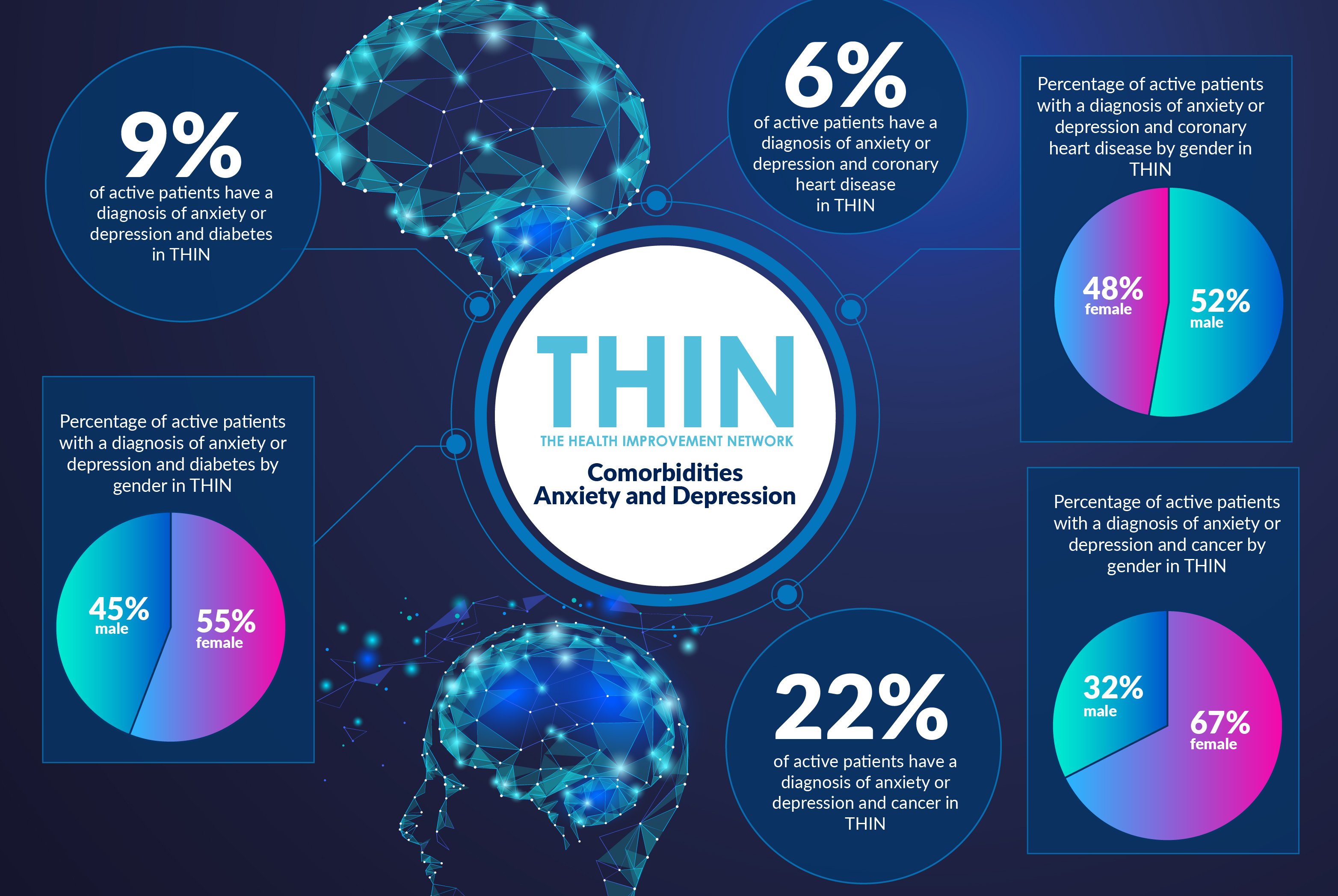
*Antidepressant prescription is classified as drugs with an ATC code of N06A%
**Patients with bipolar disorder were determined using read codes from Carr et al (2016) in combination with a prescription of the following drugs: lithium, lithium succinate, valproic acid, carbamazepine, lamotrigine, aripiprazole, olanzapine, quetiapine and risperidone
About THIN®
THIN® is an unobtrusive medical data collection scheme that contains anonymised longitudinal patient records for approximately 6% of the UK population. It is the key driving force behind enabling advancements in patient care and outcomes, with one of the most respected and reliable data sources for anonymised primary care records.
